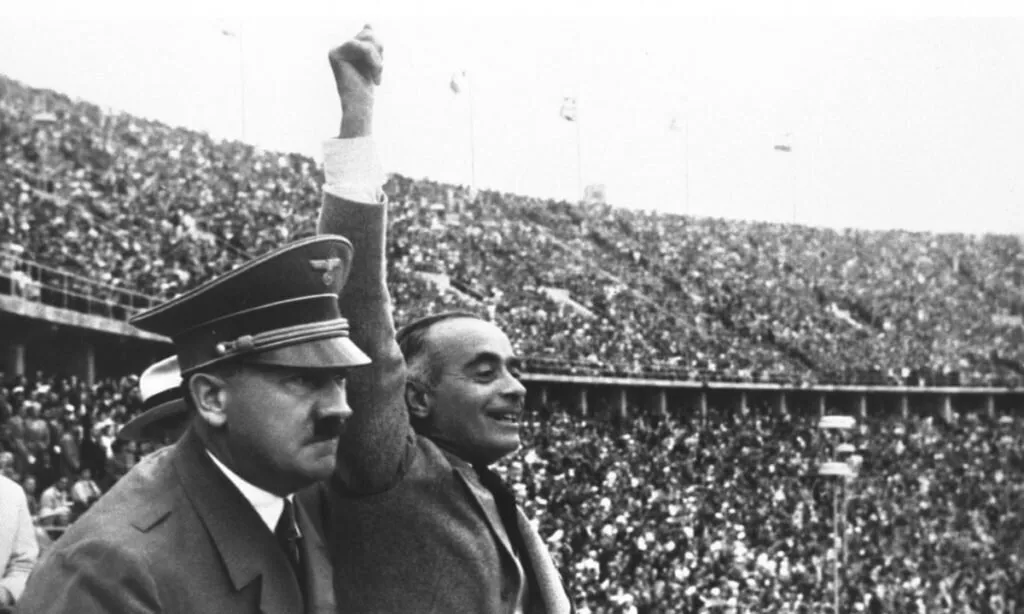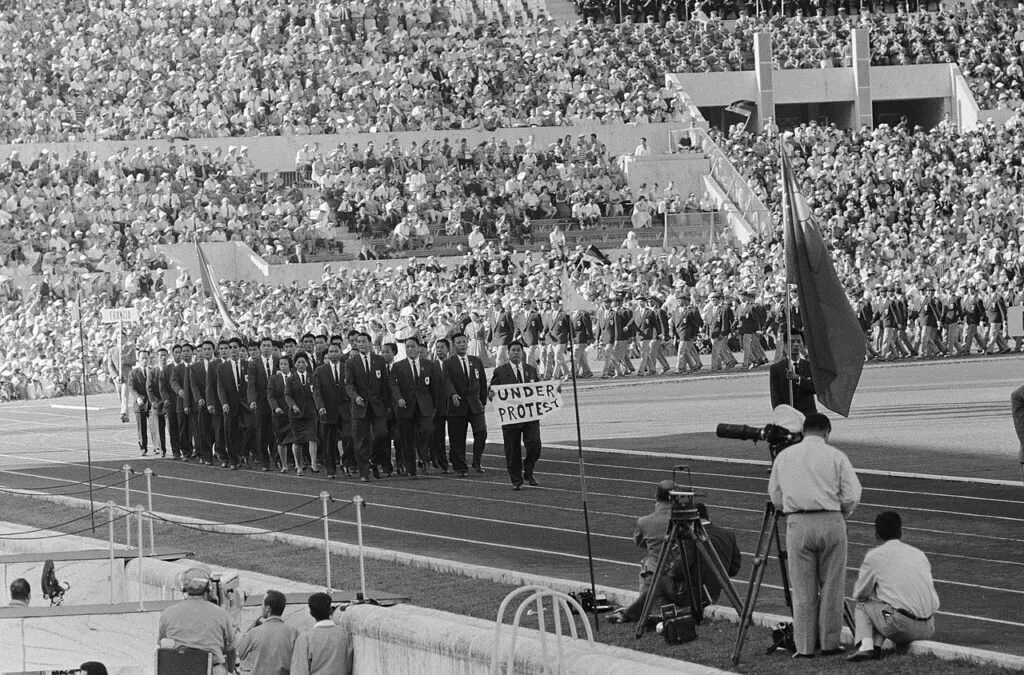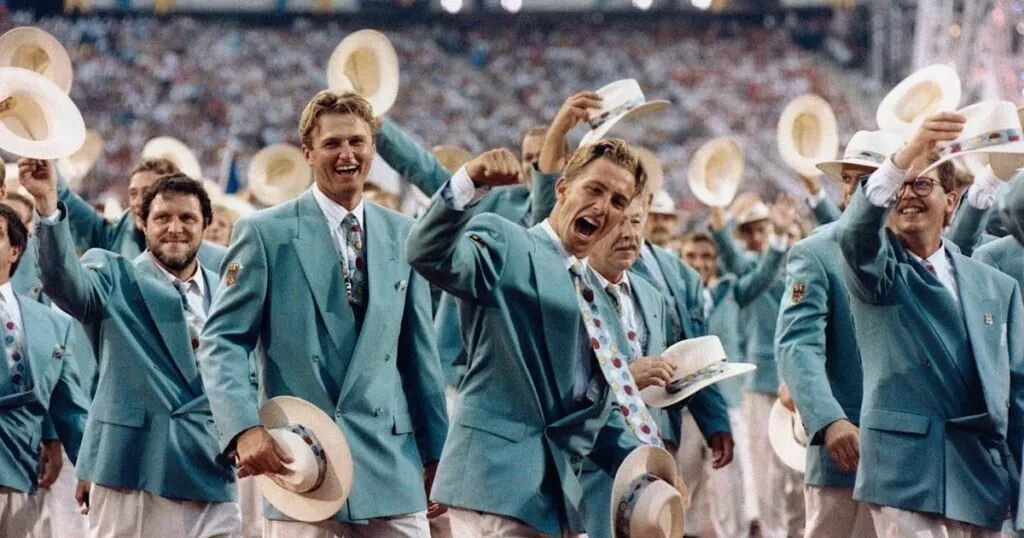Top 10 instances when sport was affected by conflicts

(Courtesy : Olympics)
Some major events were majorly affected due to
Sport and politics often collide and rarely meet under good terms. There is always a conflict arising between the two on several occasions. National leaders have left no stone unturned in harnessing the role of sport in the name of national interests. But, sporting competitions have been taking place between nation-states in conflict for many years.
Here’s a list of 10 instances when conflicts affected sport:
10. 1908 Olympic Boycott
Despite the Olympics' often-repeated claim of being apolitical, the international sporting event has long been an avenue for people and nations to make major political and social statements. In 1908, Irish athletes boycotted the London Games due to Great Britain's refusal to grant Irish independence.
9. 1914 World War I Christmas football truce
One of the most iconic and earliest illustrations of the relationship between sport, diplomacy, and peace in the modern era took place in Belgium in December 1914. This was during an irregular termination of hostilities in World War I, aimed mainly at attending to the dead and wounded.
German and British soldiers partook in many different activities, particularly the exchange of goods, and small-scale kickabouts were part of those. Such consorting was quickly halted by higher authorities, fearing it would lessen the desire to fight. The threat of harsh punishment was also imposed for those caught socializing.
8. 1936 Summer Olympics

The 1936 Games were given to Berlin in 1931, well before the Nazis took power in Germany. Once under Nazi control, however, the Olympics were presented as a prominent statement of their racial ideology.
American opponents of the Nazi ideology undertook several efforts to pressurize Germany into not discriminating against any Jewish athletes participating in the games. However the threats of a boycott fell flat as this became one of the prime examples of sports affected by conflicts.
7. 1956 Melbourne Olympics USSR Vs Hungary
The Hungarian team (Water Polo) arrived in Melbourne to find that Soviet tanks and troops had rolled into Budapest to crush an anti-Soviet uprising, which had resulted in many causalities and thousands of arrests. The Hungarian team had been training in a camp in Czechoslovakia.
The Hungarians met the Russian team during the semi-finals held on December 6, 1956. They then hatched a plan to provoke their opponents to fight, as a strategy to win the match. Five players were removed and the Hungarians cruised their way to winning gold with a 4-0 victory.
6. 1960 Taiwanese Athletes Walk Under Protest

This controversy erupted in the days before the 1960 Olympics over Taiwan’s name and was another instance of sports affected by conflicts. At that time, the United States and most western countries did not recognize the communist government in mainland China. Instead, the US and other nations viewed the leaders and people on the island of Taiwan as the overthrown and rightful rulers of mainland China.
Protests arose because the Olympic Committee forced Taiwan to compete under the name Formosa, instead of the Republic of China. During the opening ceremony in Rome, Taiwan’s athletes protested by entering with no name on their uniforms.
5. 1972 Massacre in Munich
Members of the Black September movement, a militant faction of a Palestinian leader stormed the Olympic Village, killing an Israeli athlete and a coach and taking nine hostages. They demanded the release of hundreds of Palestinian prisoners in Israel, but Israel refused to negotiate.
German officials initiated a very poor rescue attempt later in the day at the Munich airport, which resulted in the deaths of all the hostages and five of their captors. The world watched the incident on live television.
4. 1980 Moscow Olympics
Moscow became the first communist nation to host the Olympics when they did so in 1980. During the Cold War conflict, the Soviet Union invested significant material and cultural resources into international athletic success. After the Soviet invasion of Afghanistan in late 1979, the administration of then US President Jimmy Carter sought a number of ways to protest against the invasion.
In the end, 65 countries declined to participate in the Olympic Games. The Soviets retaliated four years later by organizing an Eastern Bloc boycott of the 1984 Games held in Los Angeles. The US and Soviet Union did not compete again in the summer Olympics until 1988 in Seoul, when Soviet forces were present in Afghanistan.
3. 1998 FIFA World Cup: Iran Vs USA
The political backdrop of ongoing tensions between Iran and the United States mirrored contemporary conflicts and overshadowed this football game.
Both sides exchanged flowers, gifts and photographs before the start and showed the utmost respect during the game. Iran’s 2-1 victory sparked wild celebrations that shook the government for a short time. Thousands of young Iranians, including women, ignored the warnings and they saw the victory as a good excuse to storm to the streets in large numbers. The mass protest, during that time was a political act of defiance.
2. 1992 Post–Cold War Olympics

During the games in Barcelona, Spain, Germany competed under one flag for the first time in decades. South Africa, which finally disavowed apartheid, came back after a 32-year ban. Estonia, Latvia and Lithuania all were separate teams, but the rest of the former Soviet Union competed under the Unified Team.
Bosnia and Herzegovina, Croatia, and Slovenia also participated as separate nations for the first time. Authorities banned Yugoslavia from taking part in any team sports, but individual athletes participated.
1. 2022 UEFA Champions League’s final venue
St. Petersburg was to be the venue for the UEFA Champions League final in 2022. However, it will no longer host the event due to security concerns. The event will now take place in the French capital of Paris in what seems to be another event where conflicts affected sports.
“UEFA shares the international community’s significant concern for the security situation developing in Europe. We strongly condemn the ongoing Russian military invasion in Ukraine,” the governing body said in a statement. It added, “We remain resolute in our solidarity with the football community in Ukraine. UEFA stands ready to extend our hand to the Ukrainian people.”
For more updates, follow Khel Now on Twitter, Instagram and join our community on Telegram.
Where passion meets insight — blending breaking news, in-depth strategic analysis, viral moments, and jaw-dropping plays into powerful sports content designed to entertain, inform, and keep you connected to your favorite teams and athletes. Expect daily updates, expert commentary and coverage that never leaves a fan behind.
- 'No one came after my injury' - Mirabai Chanu calls for consistent support from fans
- LA28 reveals competition schedule for Paralympics 2028; check full sport-wise schedule
- LA Olympics 2028: Check full competition schedule, dates, venues of all sports
- Abhinav Bindra named torch bearer for 2026 Winter Olympics
- Why is August 7 celebrated as National Javelin Day?
- Top 10 achievements by Indian players in world badminton
- New Zealand, Pakistan likely to miss the LA 2028 Olympics as ICC set to approve regional qualifying format - Reports
- LA28 Olympics: Cricket schedule announced, gold medal match to take place on this date
- LA Olympics 2028 full schedule out, look at potential key dates for Indian contingent
- Does Neeraj Chopra hold any Olympic record in men's javelin throw?